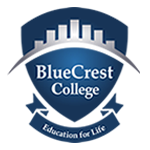Activity Types in Moodle
figo
Last Update 4 tahun yang lalu
On This Page:
- Assignment Activities
- Activities for Communication and Collaboration
- Assessments and Surveys
- Tools for Student Management
- Interactive Delivery of Content
There are many types of activities available in Moodle at Bluecrest: several types of assignments, activities for communication and collaboration between you and your students, quizzes, polls and surveys, tools to aid in managing students, and formats for delivering interactive content.
Assignment Activities
Moodle Assignments
Moodle provides several ways to track and collect work from students. You can have them submit files or enter content into a text box. You can also assign "offline" work not submitted through Moodle (but that can be graded in Moodle). You can configure how many files a student may submit, the maximum file size allowed, and set deadlines and cut-off dates. You can exchange comments with individual students about their submissions, grade (with the option to use a Rubric, Grading guide or Simple direct grading), and leave written feedback. For more detailed instructions, see Add an Assignment Activity in Moodle.
Unicheck Assignment
Unicheck helps instructors evaluate the originality of student work by comparing submitted files to online sources and the unicheck database. The software returns an Originality report which rates submitted assignments and highlights text that appears elsewhere. Unicheck also provides a suite of feedback tools, including the ability to grade using a Rubric, and add notes or comment clips directly to student submissions.
External Tool(s)
External tool allow students to interact with certain learning resources and activities on other web sites. For example, you can link to learning materials from a publisher. To setup an external tool instance, a tool provider which supports LTI (Learning Tools Interoperability) is required. The tool provider should be able to provide instructions on how to configure the external tool for their site.
Activities for Communication and Collaboration
Chat
Chat activity allows course members to hold real-time, text-based conversations with other course members. Multiple chat rooms can be set up for the same course. See Add a Chat Activity in Moodle.
Database
Database activity allows the teacher and/or students to build, display and search a bank of records. The instructor designs the format and structure of these entries which can include images, files, URLs, numbers, text, etc. See Add a Database Activity to Moodle.
Forum
Instructors and students can communicate and collaborate using Forums, sometimes called "discussions." Instructors can create topics or, depending on the Forum type, allow students to originate topics, to which course members can "post" a reply. See Add a Forum Activity in Moodle.
Glossary
The Glossary activity allows users to create a list of definitions, like a dictionary, that course participants can search or browse. Teachers can restrict access to a glossary so that only they can create entries, or they can allow students to add new entries as well. See Add a Glossary Activity in Moodle.
Wiki
Wiki is a web page (or set of web pages) that class members can create together, working directly in the browser without needing to know HTML. A Moodle Wiki starts with one front page. Any contributor can add additional pages. For more information, see Wiki (enhanced) Activity in Moodle.
Workshop
Workshop is a peer assessment activity with many options. Students submit their work via an online text tool and attachments. Students receive two grades in this activity, one for their own work based on peer reviews and another for their peer assessments of other students' work. See An Overview of the Workshop Activity in Moodle.
Assessments and Surveys
Quiz
Moodle quizzes are comprised of a Quiz activity that contains one or more questions from your course's Question bank. The Quiz activity lets you administer a wide range of question-types within a specific layout and order, provide different kinds of feedback based on how a student performed on the quiz, and control how students access the quiz. See An Overview of Quizzes in Moodle.
Questionnaire
Questionnaire activity allows you to survey your students using a wide range of question types. For example, you can collect student feedback on your course or on a particular topic. In a Questionnaire, individual answers cannot be graded, but you can award a grade for the entire activity. See Add a Questionnaire Activity in Moodle.
Choice
Choice activity allows you to post a question and specify multiple responses as possible answers. Each of your students can then pick one of the given choices. See Add a Choice Activity (Single Question Poll) in Moodle.
Tools for Student Management
Attendance
The Attendance module lets you record attendance or participation in other offline activities. The records are aggregated in a single column in the Moodle gradebook. See Record Attendance in Moodle.
Checklist
Instructors can configure checklists of required items to help students stay on track in a course. Students can check items off themselves, or you can configure some items to automatically check off when an activity such as a Quiz or Assignment is submitted. See Add a Checklist Activity in Moodle.
Group self-selection
The Group self-selection activity module allows students to select a group in the course that they want to be members of. A limit can be placed on the number of users in every group. The activity can also be set to open and close at specific times. See Add a Group Self-Selection Activity in Moodle.
Interactive Delivery of Content
Lesson
The Lesson module presents a series of HTML pages to the student who is usually asked to make some sort of choice underneath the content area. The choice will send them to a specific page in the Lesson. The lesson can be designed as a simple linear sequence, or a branching or adaptive sequence. See Lesson module (on Moodle.org).
SCORM package
The SCORM package module enables you to upload compliant SCORM or AICC package to include in your course. See SCORM module (on Moodle.org).

